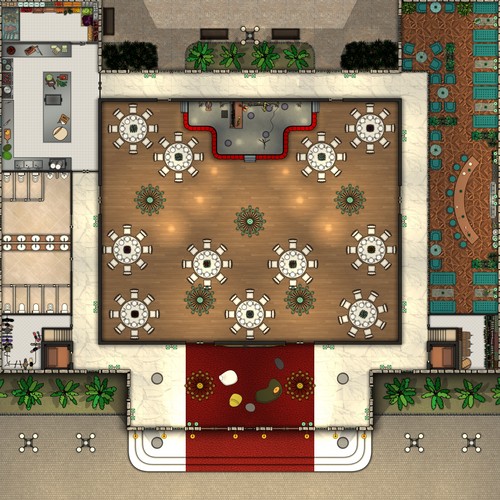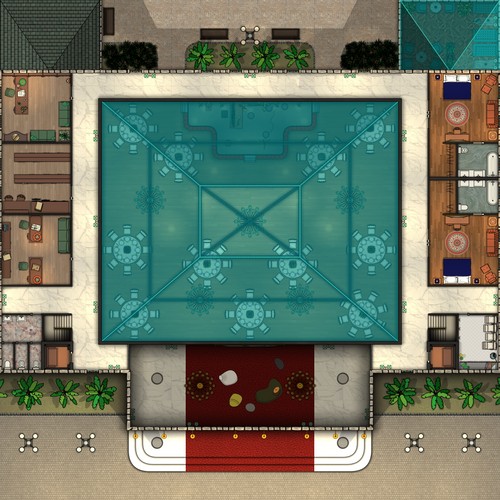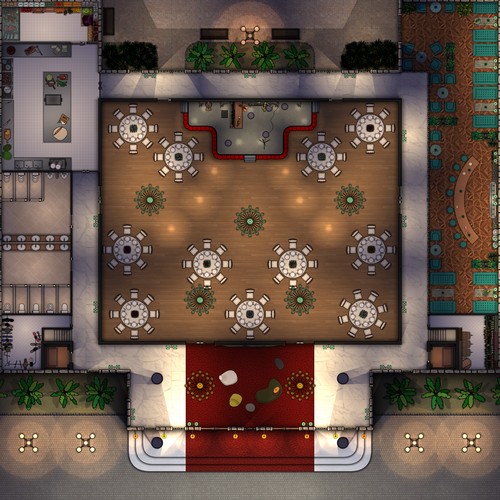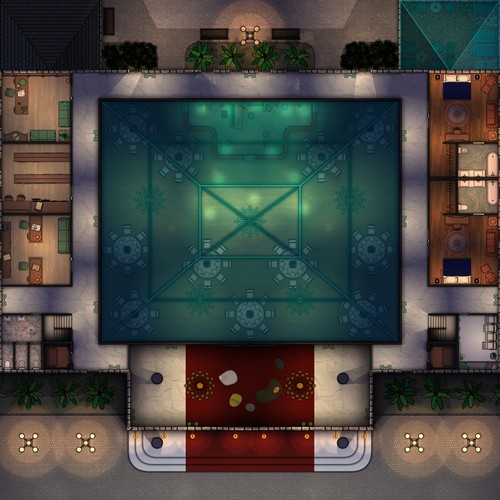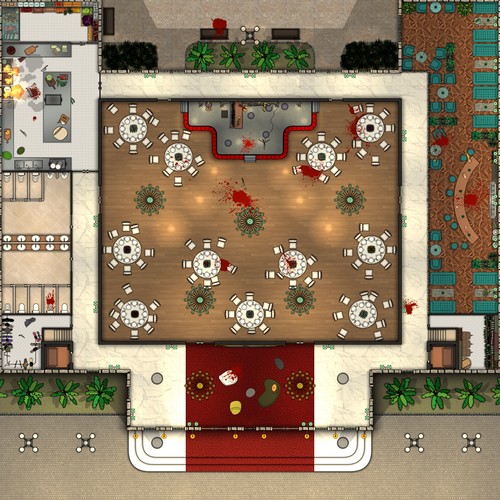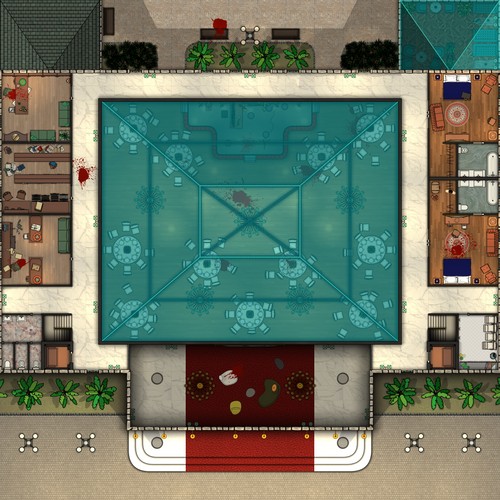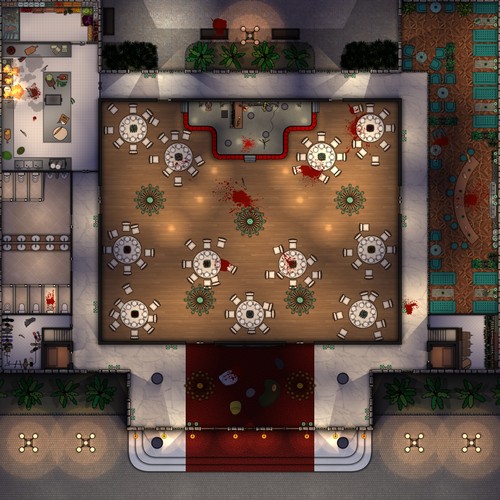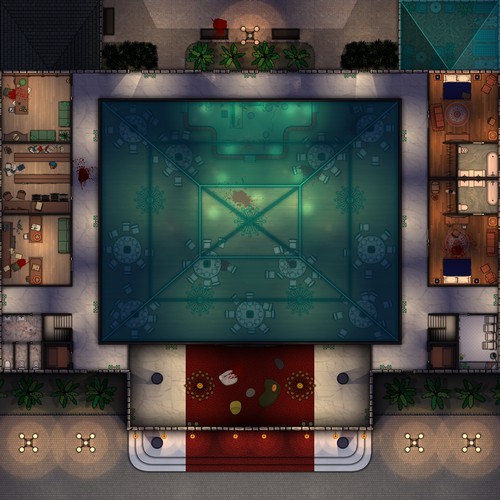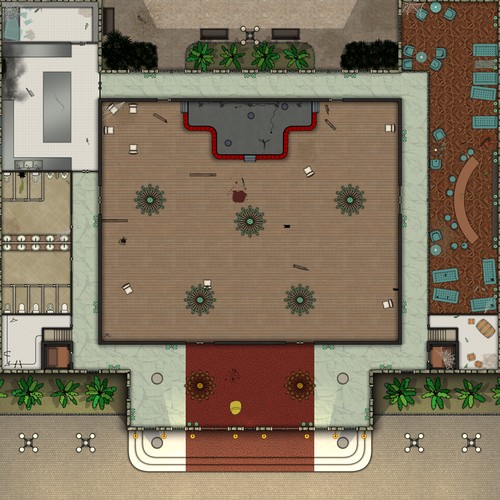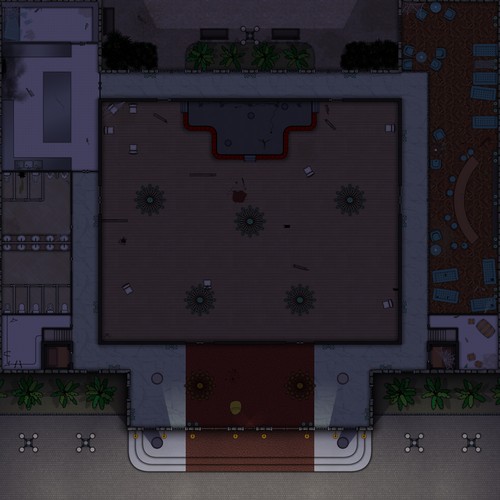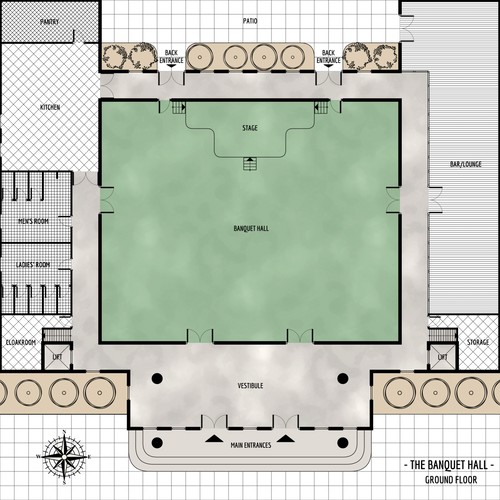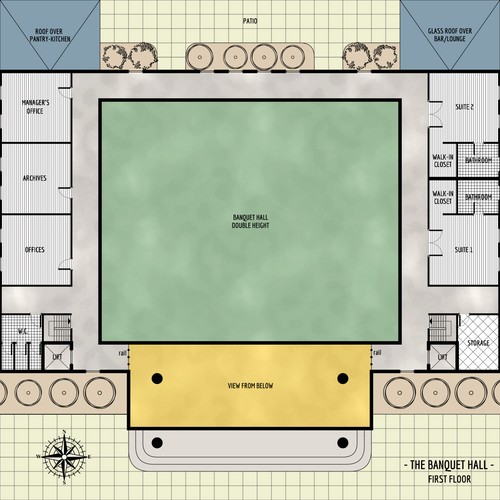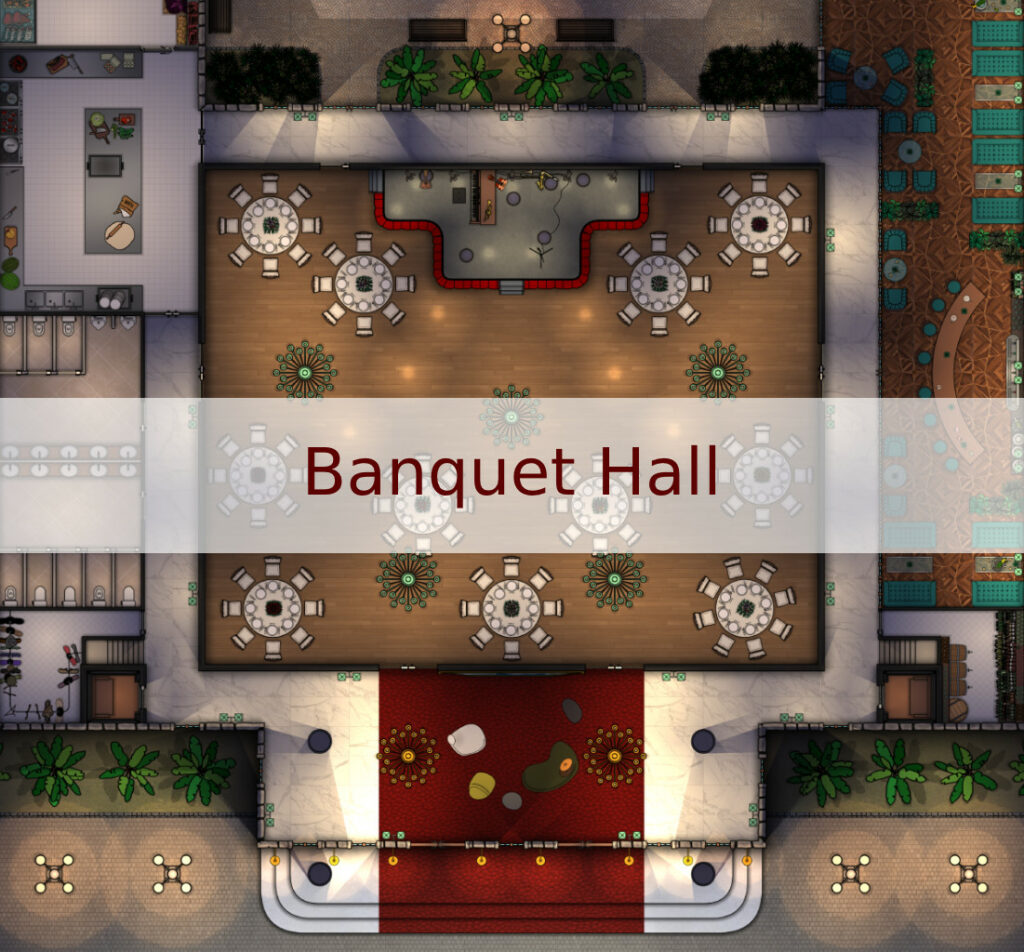Life serves the food, and Death always shows up to the banquet, like an uninvited guest with nothing in hand to contribute, just to devour everything then leave.
― Anthony Liccione
Welcome to the Banquet Hall! Your investigators might be invited to an event, or just be here for some work. People come here for special events, but also to meet the manager, who is a well known member of the local community and owns a very important archive and private library. Weird things may happen here; watch out for those big guys showing up in the middle of the celebration, they seem to be carrying some serious weaponry… There’s a Floor Plan, Normal, Splatter and Abandoned version, all in Day and Night variations! I hope you enjoy this map as much as I have enjoyed creating it!
With this map you get:
- grid & gridless variations
- PNG files, low (70 PPI) & high (140 PPI) resolutions
- day & night variations
- abandoned & splatter variations
- floor plan
- dd2vtt files for FoundryVTT & Roll20
- High-resolution WebP files
- A monthly Foundry Module with all the maps of the month personally curated by me with walls, windows, doors, lights, and more.
